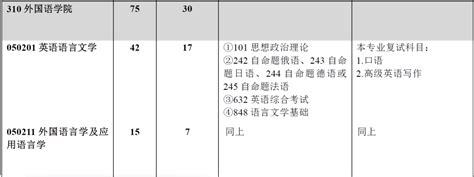英语语言文学方向论文
Exploring the Frontiers of English Language and Literature

English language and literature, as dynamic fields of study, continuously evolve at their frontiers, influenced by various factors such as cultural shifts, technological advancements, and interdisciplinary collaborations. Let's delve into some key frontiers in English language and literature today:
1. Digital Humanities and Computational Linguistics:
The intersection of technology and language studies has opened up new avenues for research. Computational linguistics employs algorithms and computational methods to analyze and understand natural language. In literature, digital humanities utilize digital tools to analyze texts, study linguistic patterns, and explore literary trends on a large scale.
2. Global English and World Literature:
With English being a global lingua franca, the study of English literature has become increasingly diverse and inclusive. Scholars explore literature from various regions and cultures, examining how different societies interpret and contribute to the English literary canon. This fosters a richer understanding of world literature and cultural exchange.
3. Environmental Humanities:
Environmental concerns are increasingly shaping literary discourse. Ecocriticism, a branch of literary studies, investigates the relationship between literature and the environment. Scholars analyze how literature reflects and influences attitudes towards nature, sustainability, and ecological issues, contributing to broader discussions on environmentalism.
4. Postcolonial and Decolonial Perspectives:
Postcolonial studies continue to challenge traditional narratives in English literature by foregrounding marginalized voices and critiquing colonial legacies. Decolonial approaches push further, seeking to decenter Western perspectives and highlight indigenous knowledge systems. These perspectives enrich literary analysis by offering alternative viewpoints and promoting cultural diversity.
5. Intersectionality and Identity Politics:
Intersectional approaches examine how multiple identities, such as race, gender, sexuality, and class, intersect to shape literary representation and interpretation. Scholars analyze how various identity markers influence power dynamics, privilege, and marginalization within literary texts and broader societal contexts.
6. Literature and Cognitive Science:
Cognitive literary studies explore the cognitive processes involved in reading and interpreting literature. Researchers investigate how readers comprehend narratives, empathize with characters, and engage with literary texts on emotional and cognitive levels. This interdisciplinary approach bridges literature with psychology, neuroscience, and philosophy.
7. Transmedia Narratives and Digital Storytelling:
The digital age has transformed storytelling, leading to the emergence of transmedia narratives that span multiple platforms and media formats. Scholars examine how literature adapts to digital environments, exploring interactive storytelling, augmented reality, and immersive narratives. This interdisciplinary field combines literature with media studies, communication, and digital culture.
8. Medical Humanities and Literature:
The intersection of literature and medicine offers insights into the human condition, illness narratives, and the patient experience. Medical humanities explore how literature portrays health, illness, and medical practices, fostering empathy, understanding, and critical reflection among healthcare practitioners and the general public.
9. Literature and Social Justice:
Literature has long served as a vehicle for social critique and activism. Scholars analyze how literature addresses social injustices, advocates for marginalized communities, and inspires collective action. This field encompasses themes such as civil rights, feminism, LGBTQ rights, and human rights, highlighting literature's role in promoting social change.
10. Experimental Forms and Hybrid Genres:
Contemporary literature embraces experimental forms and hybrid genres that challenge traditional narrative structures and conventions. Writers explore innovative techniques such as streamofconsciousness, metafiction, graphic novels, and multimedia storytelling, pushing the boundaries of literary expression and reader engagement.
In conclusion, the frontiers of English language and literature are vast and everexpanding, encompassing diverse areas of inquiry and interdisciplinary collaboration. By exploring these frontiers, scholars contribute to a deeper understanding of language, culture, and society, shaping the future trajectory of literary studies in the 21st century.












评论